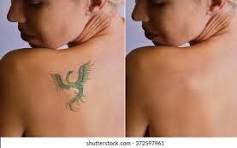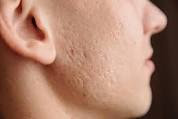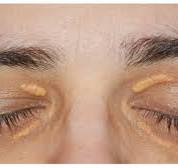**Unveiling the Art of Tattoo Removal: Exploring Techniques, Considerations, and Transformative Journeys**
Tattoos have long been revered as powerful forms of self-expression, storytelling, and artistry. However, as life's journey unfolds, individuals may find themselves seeking to remove or alter tattoos that no longer resonate with their identity or lifestyle. In this enlightening blog, we'll delve into the world of tattoo removal, examining the motivations behind tattoo removal, the various techniques available, important considerations, and the transformative journeys of those embarking on the path to tattoo removal.
**Understanding the Motivations Behind Tattoo Removal:**
Tattoo removal is a deeply personal decision that can be influenced by a myriad of factors. While some individuals may simply outgrow their tattoos or wish to make room for new artwork, others may seek tattoo removal due to:
1. **Career Opportunities:** In certain professions or industries, visible tattoos may be perceived as unprofessional or may hinder career advancement. Individuals may choose to remove tattoos to enhance their job prospects or comply with workplace policies.
2. **Relationship Changes:** Tattoos commemorating past relationships or significant life events may become painful reminders of the past following the end of a relationship. Tattoo removal can offer closure and facilitate emotional healing in such situations.
3. **Regret or Dissatisfaction:** Individuals may experience regret or dissatisfaction with the appearance, meaning, or placement of their tattoos over time. Tattoo removal provides an opportunity to reclaim ownership of one's body and aesthetic preferences.
4. **Health Concerns:** Allergic reactions, skin infections, or adverse reactions to tattoo ink may necessitate tattoo removal for health reasons. Additionally, individuals with compromised immune systems may choose to remove tattoos to reduce the risk of complications.
5. **Cultural or Religious Reasons:** Changes in personal beliefs, cultural affiliations, or religious practices may prompt individuals to seek tattoo removal to align with their evolving values and beliefs.
**Exploring Tattoo Removal Techniques:**
Advancements in medical technology have revolutionized the field of tattoo removal, offering safe, effective, and minimally invasive solutions for individuals seeking to remove unwanted tattoos. Some common tattoo removal techniques include:
1. **Laser Tattoo Removal:** Laser tattoo removal is the most widely used and effective method for removing tattoos. During the procedure, high-intensity laser beams are directed at the tattooed skin, breaking down the tattoo ink into smaller particles that are gradually absorbed and eliminated by the body's immune system. Multiple sessions may be required to achieve optimal results, with each session spaced several weeks apart to allow for skin healing and ink clearance.
2. **Intense Pulsed Light (IPL) Therapy:** Similar to laser therapy, IPL therapy uses broad-spectrum light energy to target and break down tattoo ink particles in the skin. IPL therapy may be effective for certain types of tattoos and skin tones, but it is generally less precise and may require more sessions compared to laser tattoo removal.
3. **Surgical Excision:** Surgical excision involves physically removing the tattooed skin using a scalpel or surgical tool. This method is typically reserved for smaller tattoos and may result in scarring or skin texture irregularities.
4. **Dermabrasion:** Dermabrasion involves mechanically sanding down the surface layers of the skin to remove tattoo ink particles. While effective for some tattoos, dermabrasion may cause discomfort and require a longer recovery period compared to other methods.
5. **Chemical Peel:** Chemical peels use a chemical solution to exfoliate and remove the outer layers of the skin, including tattoo ink. While chemical peels may help fade tattoos over time, they are generally less effective than laser or surgical techniques and may cause skin irritation or discoloration.
**Important Considerations and Precautions:**
Before undergoing tattoo removal, it's essential to consider the following factors and precautions:
1. **Skin Type and Tattoo Characteristics:** The success of tattoo removal depends on factors such as skin type, tattoo size, ink colors, and depth of the tattoo. Darker skin tones and multicolored tattoos may require specialized treatment protocols to achieve optimal results.
2. **Treatment Duration and Cost:** Tattoo removal typically requires multiple sessions spaced several weeks apart, with the total number of sessions depending on various factors such as tattoo size, ink density, and individual response to treatment. Additionally, tattoo removal can be costly, so it's essential to factor in the financial commitment involved.
3. **Potential Side Effects:** While tattoo removal is generally safe, some individuals may experience temporary side effects such as redness, swelling, blistering, or changes in skin texture following treatment. These side effects typically resolve on their own within a few days to weeks.
4. **Post-Treatment Care:** Proper post-treatment care is essential for ensuring optimal results and minimizing the risk of complications. This may include keeping the treated area clean and moisturized, avoiding sun exposure, and following any specific instructions provided by the treating physician or dermatologist.
**The Transformative Journey of Tattoo Removal:**
For many individuals, tattoo removal represents more than just the physical act of removing ink from the skin—it's a transformative journey of self-discovery, empowerment, and renewal. By choosing to remove a tattoo that no longer aligns with their identity or values, individuals can reclaim ownership of their bodies and redefine their sense of self. Through the process of tattoo removal, individuals may experience:
1. **Emotional Healing:** Tattoo removal can provide closure and emotional healing, particularly in cases where tattoos are associated with past relationships, traumas, or regrets. By removing a painful reminder from their lives, individuals can move forward with a renewed sense of freedom and self-acceptance.
2. **Personal Growth:** The decision to undergo tattoo removal requires courage, introspection, and self-awareness. Through the process of tattoo removal, individuals may gain insights into their values, priorities, and aspirations, leading to personal growth and transformation.
3. **Confidence Boost:** Removing a tattoo that no longer resonates with one's identity or aesthetic preferences can boost confidence and self-esteem. By taking control of their appearance and making choices that align with their authentic selves, individuals can feel empowered and more confident in their skin.
4. **New Beginnings:** Tattoo removal marks the end of one chapter and the beginning of a new one. Whether it's starting a new career, embarking on a new relationship, or simply embracing a fresh start, tattoo removal can symbolize new beginnings and opportunities for growth and reinvention.
**Conclusion:**
Tattoo removal is a deeply personal journey that offers individuals the opportunity to reclaim ownership of their bodies, identities, and stories. Whether motivated by career aspirations, relationship changes, or personal growth, the decision to undergo tattoo removal is a courageous act of self-discovery and empowerment. Through the transformative journey of tattoo removal, individuals can shed the weight of the past, embrace new beginnings, and move forward with confidence and authenticity. With the support of skilled professionals and a commitment to self-care and healing, the path to tattoo removal can be a liberating and empowering experience.
Call now
on our Mobile 8669086098 to book an appointment
Kindly visit our website Derma Solutionsto know more.
#tatoo #tatooremoval #skindoctor #dermatologist




Comments
Post a Comment